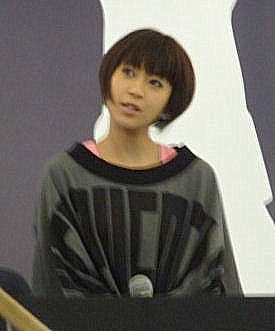
The discography of Japanese-American R&B and pop singer Hikaru Utada consists of eleven studio albums, three compilation albums, eleven video albums and numerous singles and promotional singles. Utada began as a musician in the early 1990s as a member of U3, a family unit made up of her, her mother Junko Utada, also known as 1970s enka singer Keiko Fuji, and her father, musical producer Teruzane Utada. U3 released their debut album Star in 1993, with the hope to debut in America. In 1996, the group was rebranded as Cubic U, an R&B project focusing on Hikaru Utada, resulting in the English language album Precious in 1998 with record label Toshiba EMI.

"Kabukichō no Joō" is Japanese singer Ringo Sheena's 2nd single and it was released on September 9, 1998 by Toshiba EMI, East World. It was certified gold for 100,000 downloads to cellphones by the RIAJ in 2011.

Miwa is a Japanese singer-songwriter. She debuted in 2010 with the single "Don't Cry Anymore", which was used as the theme song for the drama Nakanai to Kimeta Hi.

"Don't Cry Anymore" is Japanese singer-songwriter miwa's debut major label single, released on March 3, 2010. It was used as the Nana Eikura starring drama Nakanai to Kimeta Hi's theme song. It was certified gold by the RIAJ for full-length cellphone downloads.

"Wildflower" is a song by Japanese musical act Superfly. Used as the theme song for the drama Gold, it was released as a single on September 1, 2010. The single release was packaged as "Wildflower" & Cover Songs: Complete Best 'Track 3', a four-song extended play featuring a cover album as a bonus disc.

"Kimi tte" is a song by Japanese pop singer Kana Nishino. It was released as her 12th single on November 3, 2010. The song was marketed as a "heart-warming tender" mid-tempo ballad in the initial press release, also describing the lyrics, as being about "scaling up passion to love."

"Beep!!" is a song by Japanese musical act Superfly. It was released as a double A-side single along with "Sunshine Sunshine" in 2011, and was used as the theme song for the Hiroshi Shinagawa film Manzai Gang (2011).
The discography of the Japanese rock band Radwimps consists of thirteen studio albums, ten video albums, and 32 singles. Radwimps debuted as a musical act in 2003 through independent label Newtraxx, releasing the albums Radwimps (2003) and Radwimps 2: Hatten Tojō (2005). After being signed to major label Toshiba EMI, the band released their album Radwimps 3: Mujintō ni Motte Ikiwasureta Ichimai to increasing commercial success.
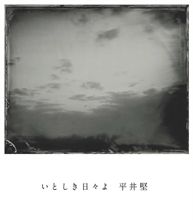
"Itoshiki Hibi yo" is the thirty-fourth single by Japanese recording artist Ken Hirai. The song was written by Hirai, composed by Kiyoshi Matsuo and production was handled by Hirai. It was released on May 4, 2011 as the fifth single from Hirai's eighth studio album Japanese Singer. "Itoshiki Hibi yo" serves as theme song for the second season of the TBS drama Jin. The B-side, "Run to You" is used in Nexco Central Japan commercials starring actress Aya Ueto.
The discography of Japanese musical act Superfly consists of seven studio albums, four compilation albums, three extended plays, five video albums and thirty-four singles. Superfly began as a duo in 2003 by vocalist Shiho Ochi and guitarist Koichi Tabo; signing with Warner Music Japan in 2007. Tabo left the band in 2007 just before the release of their single "I Spy I Spy", finding it difficult to work as both the act's songwriter and guitarist. However, Tabo remained attached to Superfly, composing and producing songs for the unit until Superfly's single "Ai o Karada ni Fukikonde" (2014) and Superfly's fifth studio album White (2015), where Ochi collaborated with a range of songwriters instead.

"Ai o Komete Hanataba o" is a song by Japanese pop-rock act Superfly. Used as Edison no Haha's theme song, "Ai o Komete Hanataba o" was released as the band's fourth single on February 27, 2008. The song was Superfly's break-through single, breaking into the Oricon physical singles chart's top 20. As of 2011, it is Superfly's most successful single, being certified as a million ringtone download, triple platinum as a cellphone download, and single platinum for digital sales.
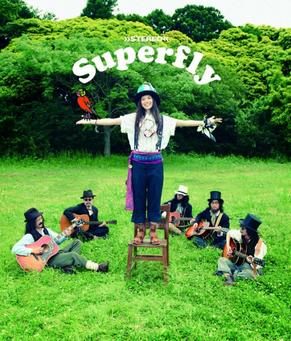
"Yasashii Kimochi de" is a song by Japanese musical act Superfly. It was released as a double A-side single along with "Koisuru Hitomi wa Utsukushii" in 2009, a month before Superfly's second studio album Box Emotions.
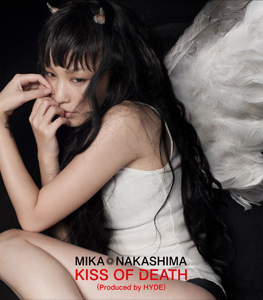
"Kiss of Death" is a song recorded by Japanese singer Mika Nakashima, released as a single by Sony Music Associated Records on March 7, 2018. It was written and produced by L'Arc-en-Ciel's Hyde. The song marks the first collaboration between Nakashima and Hyde in thirteen years, since "Glamorous Sky". "Kiss of Death" is the opening theme to the Tokyo MX anime series Darling in the Franxx. The title track was released digitally in advance after premiering on the series' second episode, on January 20, 2018.
"Shikisai" is a song recorded by Japanese singer Maaya Sakamoto. It was released as a double A-side single alongside the song "Shiawase ni Tsuite Watashi ga Shitte Iru Itsutsu no Hōhō" by FlyingDog on January 28, 2015. The song was written by Sakamoto and composed and produced by the Japanese band La La Larks. "Shikisai" is the theme song to the Android and iOS role-playing game Fate/Grand Order. The song also serves as the theme song to the animated television film based on the game, Fate/Grand Order: First Order.

Enka is the enka covers album by Japanese singer Akina Nakamori. It was released on 27 June 2007 under Universal Music Japan. It is Nakamori's fourth covers album.

Folk Song: Utahime Jojouka (フォーク・ソング〜歌姫抒情歌) is a covers album by Japanese singer Akina Nakamori. It was released on 24 December 2008 under Universal Music Japan. It is Nakamori's fifth covers album.

Folk Song 2: Utahime Aishouka is a covers album by Japanese singer Akina Nakamori. Although the original release was scheduled on 22 July, it was postponed by one week and released on 29 July 2009 under Universal Music Japan. It is Nakamori's seventh covers album.

"Aldebaran" is a song recorded by Japanese-American singer-songwriter Ai, released on November 1, 2021, by EMI Records and Universal Music Group. The song served as the theme song for the Japanese television drama, Come Come Everybody and subsequently served as the third single from Ai's twelfth studio album, Dream.
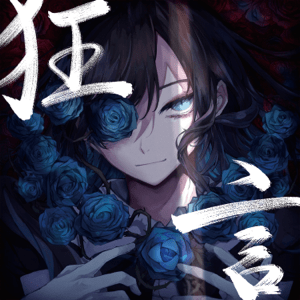
Kyōgen is the debut studio album by Japanese singer Ado, released January 26, 2022, by Virgin Music. A J-pop and rock record, the album was produced by various Vocaloid musicians.

















